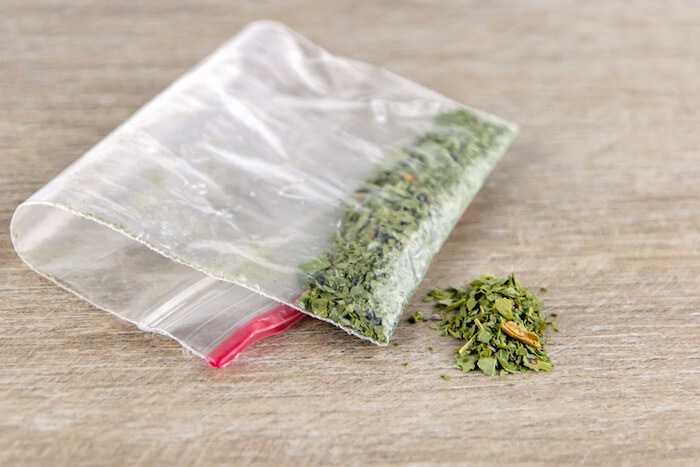This blog aims to provide comprehensive information and insights on the risks, effects, and considerations surrounding drug use during pregnancy. Understanding the impact of drug use on pregnancy is essential to promote awareness and provide guidance and support for individuals facing these complex circumstances.
We want to emphasise that this blog is not meant to pass judgement or stigmatise individuals facing these challenges. Instead, our objective is to foster understanding and compassion. By providing accurate and up-to-date information, we aim to empower anyone concerned about drug use to make informed decisions and access resources to seek appropriate care.
During pregnancy, some individuals may use illicit drugs like marijuana, cocaine, crystal meth, and prescription painkillers for various reasons. Lack of awareness, misunderstanding of the potential risks, coping with stress or emotional difficulties, pre-existing substance use disorders (SUDs), and co-occurring mental disorders contribute to drug use during pregnancy. Additionally, prescribed medications or painkillers, which can be addictive, may be required to manage specific health conditions, such as fibromyalgia.
Most Dangerous Drugs in Pregnancy
Drugs used in pregnancy known to cause the highest risk of miscarriage and foetal developmental problems include cocaine, amphetamines (such as dextroamphetamine and methamphetamine), heroin, and opiates. These substances can easily cross the placenta and have detrimental effects on foetal brain development.
- Cocaine — leads to complications like miscarriage, preterm delivery, placental detachment, high blood pressure, and stillbirth. Infants born to cocaine-using mothers are at a higher risk of low birth weight, growth defects, hyperactivity, behavioural problems, and learning difficulties.
- Amphetamines — such as dextroamphetamine and methamphetamine, can cause miscarriage, preterm birth, withdrawal symptoms in newborns (such as jitteriness, trouble sleeping and feeding difficulties), and potential long-term problems like tremors, muscle tone issues, and SIDS (sudden infant death syndrome).
- Heroin and Opiates — such as oxycontin, can cause significant withdrawal symptoms in babies. These drugs can increase the risk of apnea (breathing cessation), SIDS, and neonatal abstinence syndrome (NAS) in newborns. Infants born to opiate-addicted mothers commonly experience feeding difficulties and developmental difficulties.
It’s essential to recognise that although these drugs can cause higher risks during pregnancy, various other types of drugs can have detrimental effects on both the mother and the foetus. These include legal highs and designer drugs.
Drug Use in Pregnancy and Foetal Development
Drug use during pregnancy can significantly impact foetal development during every pregnancy trimester. Drugs like cocaine, opioids, and methamphetamines can cross the placenta, potentially causing adverse outcomes. This section outlines how drug use may impact foetal development in each of the three trimesters.
Trimester One
During the first trimester of pregnancy, a critical period called organogenesis occurs. This is when the foetus develops its major organs and structures. Using certain drugs can increase the risk of congenital disabilities during this time.
The placenta, which is developing at this stage, plays a crucial role in protecting the foetus from harmful substances. Drug use in the first trimester can cross the placenta and affect critical foetal growth and development of organs, resulting in serious issues, such as heart problems.
Trimester Two
The second trimester of pregnancy, which spans from week 13 to week 28, brings significant developments for both the mother and the foetus. Here’s an overview of foetal development during this period:
- Organ Formation — By the end of the second trimester, all major organs and body systems are formed. Bones continue to develop and harden.
- Movement — The foetus becomes more active, and the mother can feel distinct movements, known as quickening.
- Sensory Development — The baby can hear sounds, including the mother’s voice and heartbeat.
- Growth — Rapid growth occurs with weight gain and increased length.
Drug use effects on the pregnant individual include:
- Increased Health Risks — Illicit drug use during pregnancy raises the risk of complications like preterm labour, preeclampsia, and infections.
- Social and Legal Consequences — Drug use may have legal implications and can put an individual in dangerous situations, increasing the potential for risky behaviour.
Drug use effects on the foetus include:
- Developmental Issues — Drug use can interfere with normal development, leading to growth restriction, low birth weight, and delays.
- Birth Defects — Some drugs used during pregnancy increase the risk of congenital disabilities.
Trimester Three
During the third trimester of pregnancy, which typically spans from week 28 to week 40, significant development and growth occur in both the mother and the fetus. Here’s what happens during trimester three:
Maternal Changes:
- Expanded uterus — The uterus grows to accommodate the fetus, potentially causing discomfort.
- Weight gain — The mother continues to gain weight as the baby grows.
- Braxton Hicks contractions — Painless contractions may occur as the body prepares for labour.
- Increased fatigue — The growing baby’s demands can lead to increased fatigue.
- Frequent urination — Pressure on the bladder results in more frequent bathroom trips.
- Shortness of breath — The expanding uterus may make breathing more difficult.
Foetal Development:
- Rapid weight gain — The foetus continues to gain weight quickly.
- Organ maturation — Organs like the lungs, liver, and brain continue to develop.
- Movement and activity — The foetus becomes more active.
- Development of senses — Senses, including hearing, vision, and touch, become more refined.
Using illicit drugs during pregnancy poses significant risks to the mother and the foetus. Although any drug use can be detrimental, addiction to crystal meth, cocaine, opioids such as oxycodone and oxycontin, heroin, and amphetamines can lead to various complications. Let’s take a look at the specific risks:
Drug use in pregnancy includes an increase in these health risks:
- Overdose
- Infections
- High blood pressure
- Heart attack
- Respiratory failure
- Strokes
- Seizures
- Miscarriage
Almost every drug the mother uses can pass through the placenta to the foetus, potentially causing addiction and dependence. Additional risks of drug use to the foetus include:
- Stillbirth
- Preterm delivery
- Placental detachment
- Low birth weight
- Organ damage
- Sudden infant death syndrome (SIDS)
- Withdrawal symptoms
- Difficulties with sleeping and feeding
Long-Term Effects of Drug Use on the Baby
Illicit drug use during pregnancy can have significant and long-lasting effects on a baby’s development. Here are some of the potential long-term effects:
- Impaired Brain Development — disruption to the brain’s normal development can cause delayed physical growth and lifelong problems with cognitive ability, problem-solving abilities, and language skills.
- Neurocognitive and Behavioural Problems — include attentional regulation difficulties, learning problems, hyperactivity, and disruptive behaviour.
- Growth Defects — certain drugs, like cocaine, can cause growth defects in the foetus, leading to low birth weight and physical abnormalities.
To ensure the well being of both you and the baby, it is crucial to seek help if you are pregnant and using illicit drugs or not taking prescription drugs as instructed.
Seeking Help When Pregnant and Struggling with a Drug Addiction
Are you pregnant and struggling with a drug addiction in the UK? It’s crucial to seek help right away. There are several ways you can get the support and guidance you need:
- Midwife or GP — Reach out to your midwife or general practitioner to discuss your situation and ask for their help. They can give you valuable advice, connect you with resources and provide support for you and your family.
- Drug treatment services — Local NHS drug treatment services are available for anyone struggling with addiction. You can go to them directly for help and access additional support services. They have experience dealing with drug addiction during pregnancy and exist purely to treat addiction.
- FRANK helpline — Call the FRANK helpline or use their online search tool to find local free addiction support in the UK. FRANK exists to provide non judgemental and confidential advice about finding treatment for addiction — available 24/7 at 0300 123 6600.
- Tommy’s charity — Tommy’s is a charity that supports mothers and babies. They can give you confidential advice about drug use during pregnancy. Their resources can provide you with more insights and assistance.
Remember, reaching out for help is an important step in improving the future for both you and your baby. You may be concerned about social services placing your baby in care when they are born, but this is only done when there is concern the baby is at immediate risk of significant harm. Overcoming drug addiction during pregnancy is the best way to ensure you can retain custody of your baby once they are born and provide the care they need to thrive.
Don’t judge yourself for your situation. Instead, prioritise the wellbeing and health of yourself and your child. The healthcare professionals and organisations mentioned above are here to support you on your journey toward recovery and a healthier future. You don’t have to go through this alone.
At Step by Step Recovery, we offer confidential assistance on treating addiction during pregnancy and following childbirth, and we may be able to arrange same-day admission to our residential rehab in Essex. For free, professional advice, please fill out our online assessment form or call 0800 170 1222.




